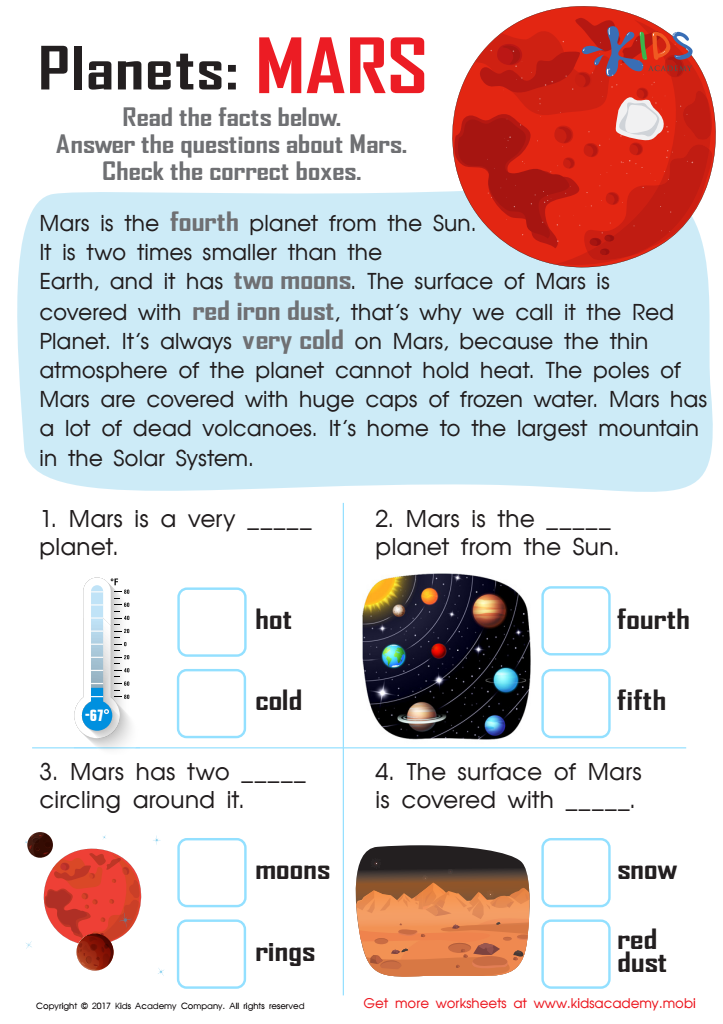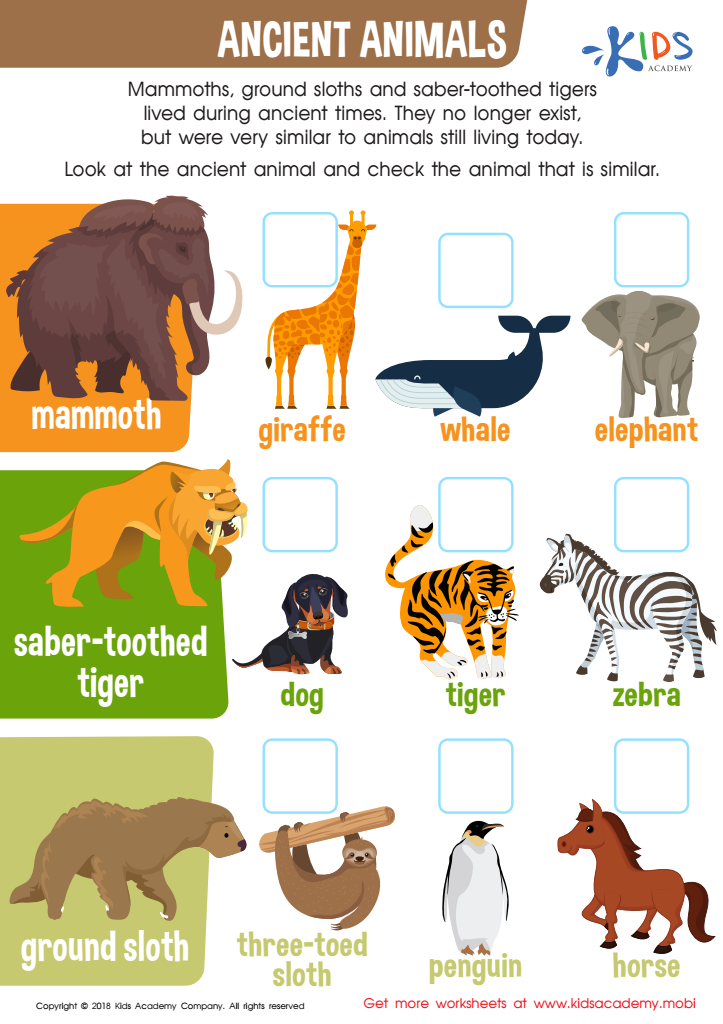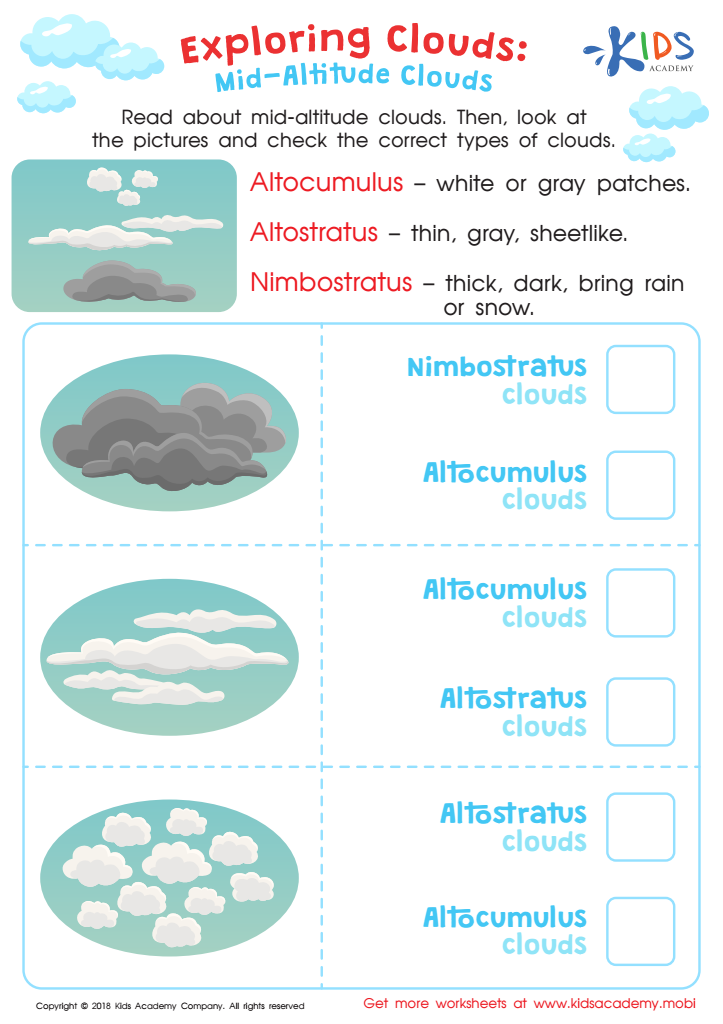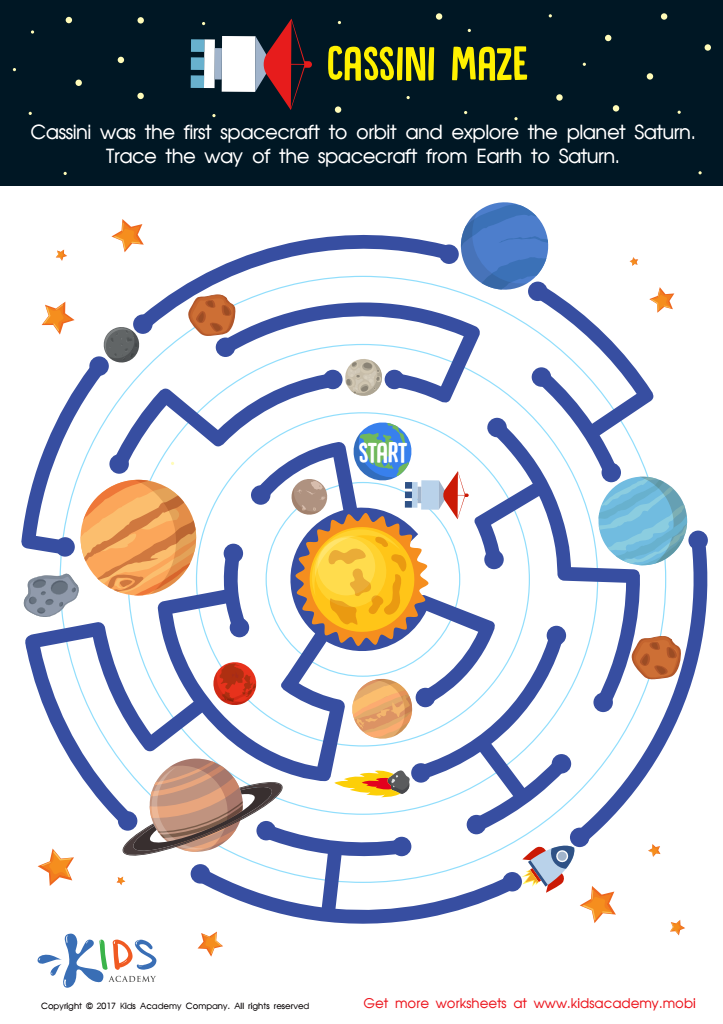Developing research skills Normal Science Worksheets for Ages 3-9
4 filtered results
-
From - To
Unlock your child's inquisitive nature with our “Developing Research Skills” Normal Science Worksheets for Ages 3-9. These worksheets are expertly crafted to inspire young explorers' interest in science, focusing on nurturing critical thinking, problem-solving, and observational skills. Engaging and age-appropriate activities encourage children to ask questions, conduct simple investigations, and record their findings. Perfect for early learners, our worksheets help build a strong foundation in scientific methodology, fostering a lifelong love for discovery and analysis. Empower your child to become a junior scientist and ignite their curiosity with our enriching resource at Kids Academy.


Mars Fact Printable Worksheet


Ancient Animals Worksheet


Exploring Clouds: Mid-altitude Clouds Worksheet


Cassini Printable Worksheet
Developing research skills in young children, ages 3-9, is crucial as it lays the foundation for lifelong learning and curiosity. At this tender age, children are naturally inquisitive, their minds eager to absorb information and make connections about the world around them. Encouraging research skills during these formative years helps channel their curiosity constructively and cultivates critical thinking.
Parents and teachers play a pivotal role in guiding children through basic research processes such as asking questions, observing, collecting information, and drawing simple conclusions. This can be seamlessly integrated into everyday activities. For example, exploring why leaves change color in the fall or how plants grow from seeds.
By fostering these skills early on, children gain confidence in their ability to seek out information independently and learn the importance of evidence-based reasoning. This habit of seeking answers and understanding fosters academic resilience, aiding them in navigating increasingly complex subjects as they grow older.
Furthermore, early exposure to research skills enhances language development, improves focus and concentration, and boosts problem-solving abilities. It's not just about learning specific facts but developing a mindset that values inquiry and evidence. Ultimately, nurturing research skills in young children supports their overall cognitive development and instills a love for learning that transcends beyond formal education.
 Assign to My Students
Assign to My Students




















